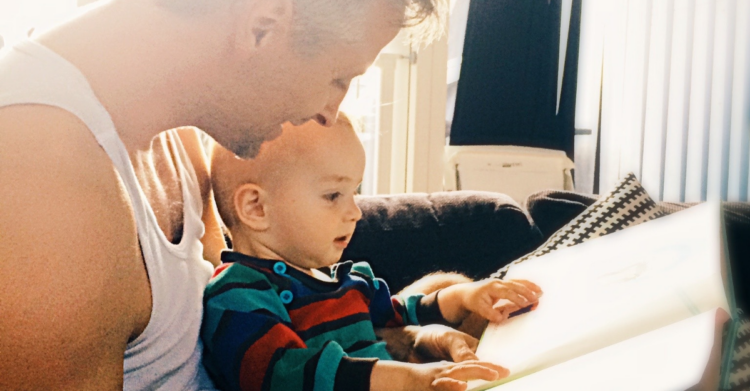Admittedly, it’s hard for me to imagine not being into reading. It’s just part of who I am and I regularly read around 100 books per year.
But I’ve never really had a strong attachment to the book as an object. Unless it’s a favorite that I read over and over, I’m fine with not having a bunch of dust-collecting books all over my house. So I jumped onto ereaders early enough for people to ask me about my weird device when I read in public.
I had a Kindle before I had a smartphone.
However, if I ever have children, I’ve always intended to fill their room with books.

Part of this is because I know that if my parents hadn’t made sure I had books to discover, I never would have fallen in love with books in the first place.
Another reason is that in a world where screens are becoming more and more ubiquitous, something tactile feels important.
Adults have enough trouble focusing on a single task when in front of a screen, so imagine how hard it is for a kid. It’s part of why I still read on a Kindle even though I have a tablet. The tablet has notifications and games and all sorts of other things that prevent me from getting sucked into a story.
I want any kids I have to learn how to balance the digital world with the tactile one.

And as much as companies tout the educational and interactive qualities of their devices and apps aimed at kids, it doesn’t feel the same as being read to by a parent. At least, in my opinion.
A new study making the rounds seems to agree with me.
The study published in Pediatrics looked at the interactions between parents and toddlers and how the format of the book being read affected it.
The sample size was small, only 37 pairs of parents and toddlers, but the results were still interesting.

They chose three reading formats to try with the pairs: regular print books, text-only digital books, and “enhanced” electronic books with sound affects and animation.
Researchers cataloged the types of verbal interactions between the parent and child as each type of book was read.

With both kinds of electronic books, the parents spent more time explaining things like how to flip the page or what spots to press to hear a sound or see something move.
With print, both parents and toddlers chatted more about the story and stayed more engaged with the activity.
Especially when comparing “enhanced” ebooks with print, since the book provided many of the sounds and interactions that a parent would when reading a print book.
Dr. Tiffany Munzer told ABC News that they aren’t trying to tell parents how things must be, but help them make the most of their time.

If you’re going to spend time reading with your child, why not make it the most engaging it can be? Plus, what a programmer might think kids like may not work for every child. Parents can more easily tailor the telling in a print book to better suit their kid’s personality.
“Parents know their children well and have to make it come alive for their child to create that magic,” said Dr. Munzer.
h/t: ABC News

















































